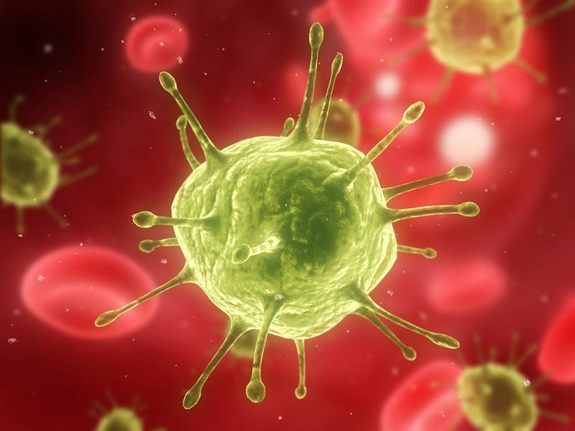Rare Double Infection: Lupus Patient Makes Antibodies to Fight HIV

One woman's uncommon ability to fight her HIV infection may provide new insights for developing a vaccine that triggers a special immune response against the viral disease, researchers said.
Scientists studied a 33-year old woman who had a rare combination of lupus, an autoimmune disease in which an overactive immune system attacks the body's cells and tissues, along with HIV, which damages and weakens the immune system.
The researchers found that in response to her HIV, the woman's immune system produced what are called "broadly neutralizing antibodies," which are effective in controlling HIV.
Very few people infected with HIV create these antibodies, because the immune system typically keeps their production in check. However, it has been suggested that impaired immune systems, such as those of people with lupus, would allow for the production of these antibodies, the researchers said. [11 Surprising Facts about the Immune System]
"We found that the patient did indeed make these important antibodies, and by determining how this immune response occurred, we have enhanced our understanding of the process involved," said study researcher Dr. Barton Haynes, director of the Duke University Human Vaccine Institute.
The findings will help researchers better understand the details of how the immune system produces broadly neutralizing antibodies, which could one day lead to vaccines that unleash these antibodies when they're needed, said Dr. Mattia Bonsignori, an assistant professor of medicine at Duke and another researcher on the study.
Keeping up with a fast-changing virus
Get the world’s most fascinating discoveries delivered straight to your inbox.
One main hurdle to developing an effective HIV vaccine is that the virus frequently changes its genetic code as it replicates, and the antibodies produced by an infected person's immune system cannot keep up with all the new variants of the virus.
However, broadly neutralizing antibodies, which were discovered in 1990, are more effective against HIV than any other antibody. Several scientists have shown that broadly neutralizing antibodies could fight multiple strains of HIV.
Although this seemed to be promising breakthrough in HIV research, it hasn't been clear to researchers how to trigger the immune system to produce more of these powerful antibodies.
"We wanted to induce this response in people who are not infected with HIV, to protect them, but the body just didn't want to make these kind of antibodies," Haynes said.
Does lupus hold the key?
A few years ago, Haynes and his colleagues found that some broadly neutralizing antibodies to HIV also attack the body's own tissues, suggesting the reason they are not routinely made is that the immune system sees them as harmful.
These antibodies looked a lot like those the research team had been studying in lupus patients who were not infected with HIV.
"It was a clue that the antibody is coming from the same pool of immune cells that give rise to auto-reactive antibodies in autoimmune disease," Haynes said.
It took several years for the researchers to find a patient who had both lupus and HIV, so they could look for broadly neutralizing antibodies in her blood.
There likely is more than one way for broadly neutralizing antibodies to be made, Haynes said, and now with these new insights from the lupus patient, researchers hope that they can create more efficient pathways for the antibodies to be made.
The finding does not mean that people with lupus are immune to HIV infection, or even necessarily that they may have a better prognosis than other people infected with HIV, Haynes said. Although people with lupus can eventually make broad neutralizing antibodies, the process may take years. If they are exposed to HIV, the infection will likely still take hold, the researchers said.
The study was published Monday (March 10) in the Journal of Clinical Investigation.
Email Bahar Gholipour. Follow us @LiveScience, Facebook & Google+. Original article on Live Science.

